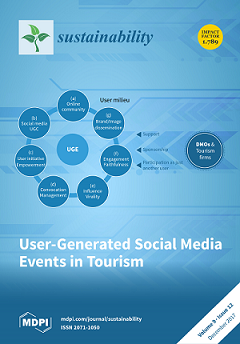When the “Strong Arms” Leave the Farms—Migration, Gender Roles and Risk Reduction in Vietnam
Abstract
For many family farms, migration is one strategy for reducing poverty and vulnerability to both natural hazards and economic risk. While more men typically migrate to work, the implications of this on the household are inconclusive, especially for the women who remain on the farms. This study employs a gender lens to examine the effects of economically driven migration on household decision-making, farm labor and disaster risk reduction, focusing on two disaster-prone regions with high poverty rates in Vietnam: Dien Bien (Northwest) and Ha Tinh (North Central Coast) provinces. Surveys of 228 households with at least one migrant worker showed a new generation of young male and female migrants, and that men over 30 years of age migrated for longer periods and more frequently than their spouses. Intrahousehold impacts differed according to risk strategies. In areas with a lower-risk coping strategy (Dien Bien), seasonal jobs coincided with periods of less intense farming activities. During the absence of male family members, women temporarily made more domestic decisions. In areas with a higher-risk adaptation strategy (Ha Tinh), farming was planned for longer absences; thus decisions remained largely unchanged. Remittances invested into agriculture contributed to shortening the recovery period after disasters and, in some cases, diversifying farming systems. The migrant’s absence was offset by relatives and neighbors as essential labor reserves. New resilient farming systems need to be disaster proof, gender-sensitive and free up labor.

